It wasn’t that long ago that the most disruptive piece of technology to enter the classroom was the Smart Board. After some initial reluctance, educators quickly embraced the new instruction paradigm, and adoption of a once seemingly intimidating piece of technology became quite commonplace. In fact, in many (if not most) K-thru-12 classrooms, the entire curriculum is now oriented around the Smart Board.
And so it is with “teacher technology” — an evolutionary, and in many cases, revolutionary trend to modernize the classroom, customize the learning environment, and maximize student performance, aptitude and progress by tracking and applying sophisticated metrics and analytics.
Multi-Sensory Education Tools with Multiple Applications
Perhaps there is no better example of the now nearing limitless potential of “EdTech” than Teacher Tools, a suite of educational tools and technology custom-developed for the Institute for Multi-Sensory Education that allows classroom instructors to easily adopt and apply the widely acclaimed Orton-Gillingham educational materials, methodology and products.
Having studied and documented its effectiveness in instructing students coping with dyslexia, the Orton-Gillingham approach used since the 1930s is unique in that it utilizes three learning modalities, or pathways, through which people learn— visual, auditory and kinesthetic.

Grid’s development team mapping the re-release of IMSE’s website.
Though the methodology has been around for decades, new excitement and enthusiasm has taken hold thanks to powerful new web-apps. These systems empower teachers to effectively educate children who learn differently, build lesson plans, collaborate with other teachers, assess student performance and track progress through intuitive metrics.
Customized Learning Requires Customized Thinking
What came as little surprise to many teachers on the education “front lines” is just now nimbly smart technology can adapt to the needs of teacher and pupil alike. Children today are being diagnosed earlier and more accurately than ever before when it comes to learning challenges and differences, whether they be related to dyslexia, ADHD, the autism spectrum, or even learning English as a second language (ESL). Technology is rapidly evolving to help teachers educate in a diverse classroom of learning differences, transcending learning disability and educational device at once (Smart Board, Web, mobile, tablet, e.g.). Assessment is coming further to the fore, as teachers want to assess children individually, in addition to evaluating classroom performance generally.
What came as little surprise to many teachers on the education “front lines” is just now nimbly smart technology can adapt to the needs of teacher and pupil alike.
All of this takes nimble technology, along with willing educators, school districts, curriculum directors, and even parents, ready to embrace it and adopt it.
Adopting and adapting requires change. Some change is mandated…at the state and federal level, and with the expansion of Common Core. Other change is simply a matter of innovative educators and systems pioneering and proving out the shifting educational paradigm.
The good news is that entire systems of educators are partnering with inventive technology providers to demystify education standards and create accessible, intuitive and powerful tools that allow teachers to comply and evolve in an agile, adoptable way.
 Menu
Menu

